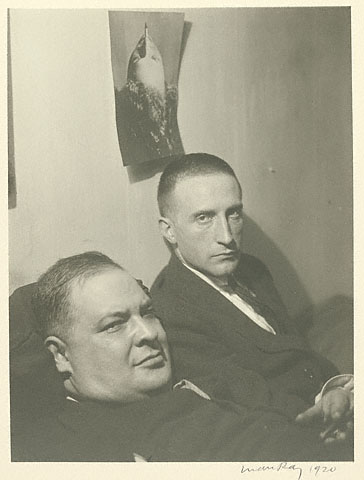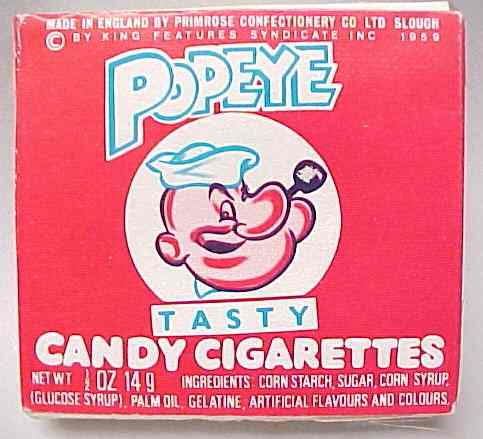The Party Never Ends
Sherief: "I'm intrigued by the fact that this discussion is in the "Thought" section..."
Yes, its vintage aside, it might be more suitably positioned under
Biology without Biopolitics? , the thread you started recently, only that it too is in the "Thought" section
 Have a Smoke
The Deluxe Man Ray Selection
Gek-opel
Have a Smoke
The Deluxe Man Ray Selection
Gek-opel: "Padraig nails it with Psychedelic Fascism. "
The term originated in 1972, in Stanley Kubrick's response to liberal nihilist Fred M. Hechinger's
New York Times article accusing
A Clockwork Orange of being "the essence of fascism" :
"Hechinger asks, 'Is this an uncharitable reading of...the film's thesis?' Mr. Hechinger asks himself with unwanted if momentary doubt. I would reply that it is an irrelevant reading of the thesis, in fact an insensitive and inverted reading of the thesis, which, so far from advocating that fascism be given a second chance, warns against the new psychedelic fascism -- the eye-popping, multimedia, quadrasonic, drug-oriented conditioning of human beings by other beings -- which many believe will usher in the forfeiture of human citizenship and the beginning of zombiedom. "
Gek-opel: "I took it ["psychedelic fascism" as fundamental to abstract pomo Kapitalism's condition of workable possibility] to mean that it was a necessary functional element of capitalism, (as a system by which revolutionary counter-hegemonic energies could be nullified) but the stuff about linking it to post 60s babyboomer/hippie takeover (ie- Gates/Blair) muddies the waters a little- perhaps that bit is a demonstration that those associated with drug-fueled counterculture (tho very, very loosely) are now the leaders and chief architects of late capital. But I think that their links to psychedelics themselves are pretty damn tenuous."
Yes, it makes capitalism more "bearable" (by pretending not really to be a part of it, disavowing it) while conditioning one to its fundamental psychic cause, its psychic
modus operandi. I take your point about the post-60s linking being somewhat ambiguous, though I was referring to
ex-hippies, of which a larger proportion relative to the overall population are proponents of liberal capitalism [and I might add that the majority of people I've known who were heavy drug-users, a few of them pushers to boot, particularly in college and environs, are now - the ones that
survived, that is, - conservative, fully-paid-up endorsers of same, as much as they might like to still imagine otherwise].
Satanmcnugget: " ... given that, using the generic phrase "drugs" to describe and talk about ALL drugs is far too simplistic. "
For sure, yes, and I'm reminded here of
Sherief's question in the Biopolitics thread: "I'm not here to praise biopolitics, but to bury it. The question I have is, assuming there is escape or emancipation from this vast biopolitical paradigm, what Agamben gloomily calls the "nomos of the camps," how do we save medicine? [ ... ] Then, perhaps I/We can rephrase the question- How does one protect/save life without separating bios from zoe? Can we perform medical procedures without the political procedure of exception?"
I'm also reminded of seeing the late Dennis Potter during his last TV interview scooping back glassfulls of liquid morphine to ease the excruciating pain of his cancer-riddled body, or further back still to Freud's discovery of cocaine as an anaesthetic [for which some neurologist took all the credit] ... and, as
Gek-opel concludes concerning the perils of drugs under commodity fetishism, "In other societies recreational drugs were used in spiritual ritualistic contexts, rather than the all-consuming context of consumer-capitalism. This approach would make more sense. The difficulty is engaging with these products in a way which is not distorted by the underlying thought processes between consumerist-subject and consumable-object under late capitalism." But the problem, of course, is the "all-consuming context of consumer-capitalism" which by definition then problematizes other "approaches."
Have Another Smoke
... From Spinach to Candy
Sizzle: "As far as K-Punk's article I think there are some truths in there but criticizing weed without ever having smoked is like criticizing a book you've only heard about from others, basically weak. If he wanted to make an informed critique that people who smoke would take seriously he would have to engage with his subject and try smoking. Otherwise he's basically preaching to the converted and will certainly not reach people like me."
Theory shouldn't, however unwittingly, be confused with subjectivized, anecdotal "personal experience," which is invariably self-justifying as it ignores the palimpsest of social forces that ultimately determine it. Try your approach with War:
you must first engage with war-mongerers and try slaughtering in order to be able to make an informed critique that people who slaughter can take seriously, etc.
Confucious: "... but while capitalism may want us to be asleep, unaware, and addicted, with no autonomy of thought or action, at the same time it wants us to be productive, to unwaveringly conform and participate in the official culture, and most of all whole-heartedly believe in the dominant ideology and take all of its illusions for granted."
Yes, that is its official narrative, broadcast by all its institutions, though it clearly isn't how ideology works. What makes it work [and here I agree with Zizek] is the act of disavowal, is the "awareness" that we do not fully conform to it, is the sense of distance, the belief that lurking outside of it is
an autonomous, real and authentic human being, a belief that leads to all kinds of fetishistic practices [ from drugs to spiritual fads to the quest for Self] while all the time leaving ideology fully intact. And yes, capitalism is pretty successful at doing this, keeping us, as you say, asleep, unaware, and addicted. Without the - widespread - belief in that underlying "authentic, trans-ideological hard kernal" of precious selfdom ideology cannot work. Pass the reefer, dude ...
 And Then Have Some More
Sarah Lucas, Nature Abhors a Vacuum, 1998, cigarettes
And Then Have Some More
Sarah Lucas, Nature Abhors a Vacuum, 1998, cigarettes
... Damien Hirst, Horror at Home, 1995








